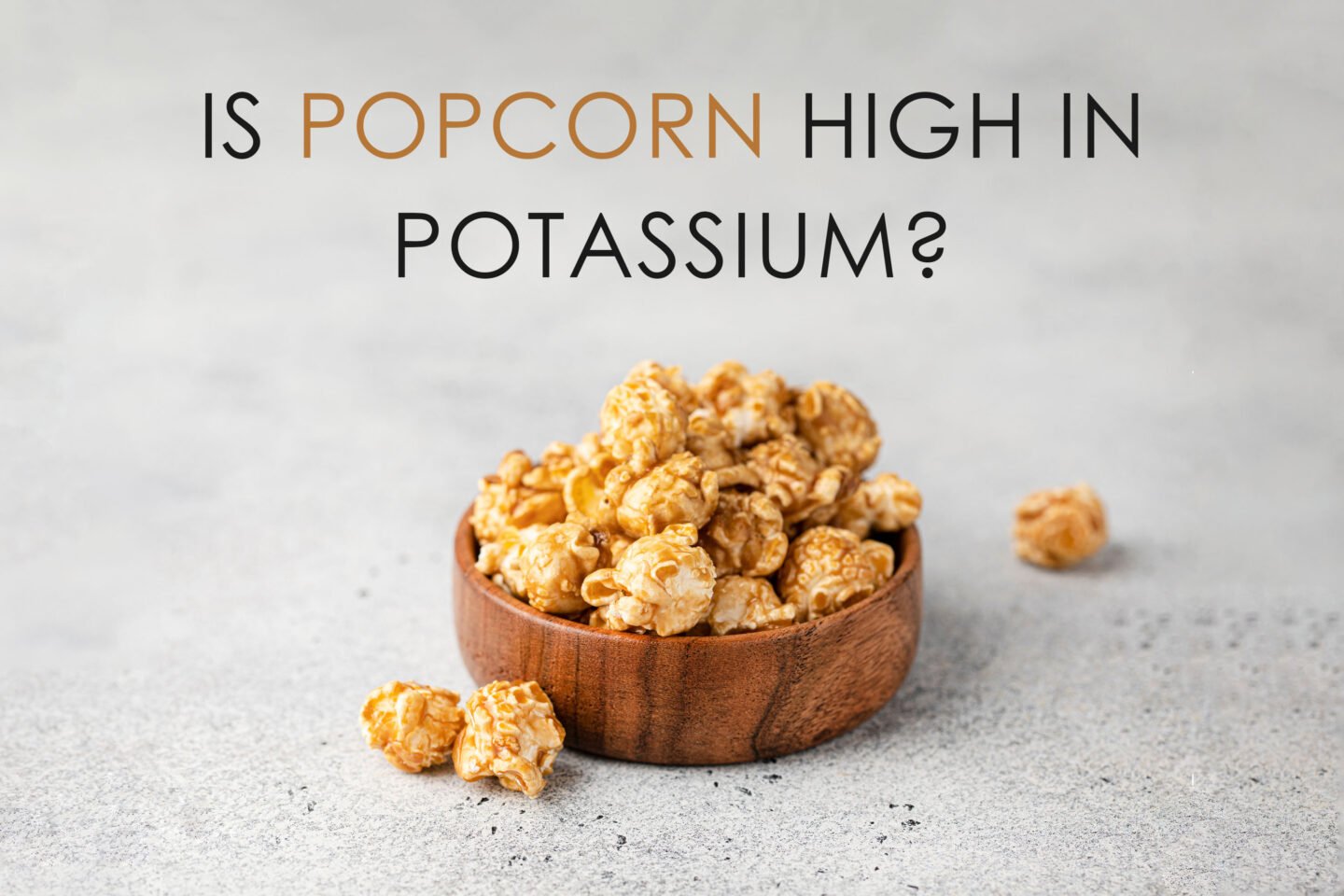Potassium is essential for many bodily functions; it maintains fluid levels inside our cells, aids blood pressure control, and supports muscle contractions. Many foods contain a lot of potassium, including fruits, vegetables, and meats. So, if you're seeking to increase your potassium intake, it's relatively easy to design a diet.

However, people suffering from kidney disease may need to limit their potassium intake, which can prove more difficult. They must be aware of the potassium contents of different foods, limiting their intake or excluding them from their diets entirely.
This can be especially difficult with delicious snack foods like popcorn.
Table of Contents
Is Popcorn High or Low in Potassium?
Popcorn is low in potassium, so it is safe for most people on a low-potassium diet. However, it does contain some, so be sure to check your overall daily intake and stay within the limit suggested by your doctor.
Can You Check Your Potassium Level at Home?
How Much Potassium Is in Popcorn?
The recommended daily potassium intake is around 3,000 milligrams for most adults. One ounce of air-popped popcorn contains about 93 mg of potassium, and the same-sized serving of microwaved contains about 51 mg.
The potassium content of popcorn varies with the brand, cooking method, and where the corn was grown. For example, kettle-popped contains more potassium than air-popped, and corn grown in volcanic soils contains more than that from other areas.
Popcorn's Health Benefits

It's whole-grain
Whole grains are high in fiber, which adds bulk to the stool, preventing constipation and keeping you regular.
It also absorbs acidity and toxins in the gut and keeps you feeling full longer after eating.
It's low in calories
A cup of air-popped popcorn contains only 31 calories. However, some microwaveable brands can be high in calories.
It's a good source of antioxidants
Antioxidants can help protect you from disease, and a cup of air-popped popcorn contains up to 58% of the recommended daily intake, mainly in the hull.
It contains B vitamins
A cup of air-popped popcorn contains up to 25% of the recommended daily B vitamin intake.
B vitamins are important for energy production, mood, cognitive function, and food metabolism.
It contains trace minerals

Popcorn contains magnesium, zinc, and potassium.
Magnesium contributes to muscle and nerve function and energy production.
Zinc supports a healthy immune system, wound healing, and senses like taste and smell.
Potassium aids muscle function and heart health and maintains blood pressure.
May improve cognitive function
Popcorn contains polyphenols, which help protect the brain from damage and improve cognitive function. They're also anti-inflammatory and antiviral.
May reduce the risk of some types of cancer
The antioxidants in popcorn help protect the body from damage by free radicals, which may reduce the risk of cancer.
May improve heart health
Popcorn contains fiber, which can lower cholesterol levels, supporting heart health. The antioxidants in popcorn help reduce inflammation and the risk of heart disease.

Suitable for those sensitive to gluten
Popcorn is gluten-free, so it can be eaten by those sensitive to it, such as people with celiac disease.
Can People with Kidney Disease Eat Popcorn?
Popcorn should be safe for most people following a low-potassium diet. However, if you have kidney disease, consult your doctor before adding popcorn to your diet.
Can You Reduce the Potassium Content of Popcorn?
Removing the hull lowers the potassium content of popcorn, and some cooking methods do the same, such as microwaving.
Conclusion
Popcorn is a tasty, healthy snack that most people on a low-potassium diet should be able to tolerate.
Don't know which foods are high in potassium? Read our article, 15 Best Food Sources of Potassium. We also have a guide to this important mineral: Potassium 101: All You Need To Know About Potassium.
